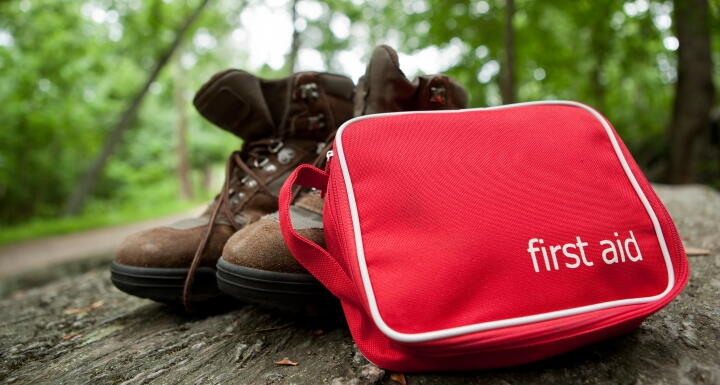Adventurer Beware! The Scope and Enforceability of Liability Waivers in North Carolina

Summer is upon us. The great outdoors beckons. There are trails to hike and rivers to paddle. Summer travel is in full swing and summer camps have opened their gates.
If you are fortunate enough to be embarking on adventures of your own, chances are high that you have signed a liability waiver, indicated your consent to be bound by a liability waiver, or waived liability on behalf of your minor child so that he or she could enjoy a fun activity.
If, on the other hand, you are the one offering adventures to the public and are operating or hosting an activity, camp, or travel program, chances are also high that you have required participants (or their parents, if the participants are children) to execute such waivers, and hopefully the waiver has been prepared by and reviewed by your attorney.
Recent Case Law: Thackurdeen v. Duke University
Whether you are executing liability waivers or requiring them to be executed, the reality is that few people pay attention to the actual language on the waiver until something unfortunate occurs. When an accident happens, the liability waiver—its scope and its enforceability—becomes critically important to all parties involved.
A recent decision from the United States District Court for the Middle District of North Carolina, Thackurdeen v. Duke University, provided a federal district court with the opportunity to analyze liability waivers under North Carolina law. The Thackurdeen decision is an important reminder to adventurers (participants and hosts alike) on the scope and applicability of these documents.
In Thackurdeen, the court considered the enforceability of an activity waiver releasing Duke University (“Duke”) and a college study abroad program (the “Global Health Program”) from liability for a tragic accident that occurred while Ravi Thackurdeen was enrolled as a student in the Global Health Program in Costa Rica.
During the spring of 2012, Ravi and his fellow students were participating in a celebratory beach trip that occurred at the end of the program when Ravi drowned in a rip current. Ravi’s parents sued Duke and the Organization for Tropical Health, the program in which Ravi was enrolled while he was participating in the Global Health Program. In the suit, Ravi’s parents asserted claims for wrongful death and negligence, among others, against Duke and OTS.
The Waiver Language
Duke and OTS argued that the claims for negligence and wrongful death were contractually waived and released by Ravi and Ravi’s father prior to the time that Ravi left on his trip. When Ravi was accepted to the Global Health Program, he and his father signed a “Statement of Authorization and Consent” for Duke and an “OTS Participation Agreement.”
The Duke waiver included language that the signers understood participation in the program was voluntary and the program involved some element of risk. The waiver also stated that the signers agreed not to hold Duke liable for “any injury or loss to person or property the student might sustain while participating,” and Duke was released from “any liability whatsoever” for “any personal injury . . . arising out of participation in the program.”
The OTS Waiver contained a section entitled “Release, Assumption of Risk, Waiver of Liability, and Hold Harmless Agreement,” and included language that in exchange for Duke and OTS allowing Ravi to participate in the Program, Ravi released, waived, discharged, and covenanted not to sue Duke or OTS “for any liability, claim and/or cause of action arising out of or related to any loss, damage, or injury, including death that may be sustained by me . . . that occurs as a result of my traveling to and from, and participation in this activity.” The OTS Waiver further provided that Ravi agreed to indemnify and hold harmless Duke and OTS whether injury was the result of Ravi’s negligence, Duke’s or OTS’s negligence, or the negligence of any third party. The OTS Waiver also included an express provision that the waiver should bind the members of Ravi’s family and Ravi’s heirs if Ravi was deceased.
The Court’s Opinion
Among the arguments that Ravi’s parents made were that their claims for wrongful death and negligence fell outside of the scope of the Duke and OTS waivers. Specifically, they alleged that the beach trip resulting in Ravi’s death was an unplanned trip that was not part of a regular class, lecture, or field trip relevant to the educational experience or scope of the program.
The court disagreed. Assessing the language in each of the waivers, the court found that the beach trip was within the activities contemplated by both contracts. The Duke waiver contemplated “participation in the program” and the OTS waiver released liability from “traveling to and from, and participation in this activity.”
The Court noted that the waivers were not written in a way that exempted certain activities, and the beach trip, even if unplanned, was a program-sponsored event and was part of the activity or program contemplated by the waivers.
In reaching its conclusion, the court undertook a careful analysis of the precise nature of the injury that occurred as well as the language of the waivers to determine the scope of the liability.
As the court observed, courts do not blindly enforce liability waivers. For example, in Palacino v. Beech Mountain Resort, Inc., the Western District of North Carolina held that an injury was outside the scope of a waiver because, at the point in time when the injury occurred, the plaintiff was not doing the precise activities (skiing, snowboarding, or tubing) contemplated in the lift ticket and equipment rental agreement. Likewise, in Strawbridge v. Sugar Mountain Resort, Inc., the Western District held that an equipment rental waiver did not bar a claim because the release only barred actions caused by rental equipment, not injuries caused by mountain conditions.
Public Policy Considerations
The Thackurdeen case also highlights the additional public policy analysis that courts will undertake, even if the language in a liability waiver covers the scope of the injury. This analysis considers whether waiving liability for “highly regulated activities” violates a substantial public interest.
In Thackurdeen, the court found that the Duke and OTS waivers were not void for violating a substantial public interest. Even though higher education is a highly regulated activity in North Carolina, the activity that caused the injury was swimming in the ocean, not higher education, and therefore it did not trigger the substantial public interest exception.
Similarly, in Kelly v. United States, the Eastern District of North Carolina enforced a waiver signed by a parent on behalf of her minor teenager after the teenager was injured while participating in a junior Navy ROTC program.
While the majority rule in the United States is that parents may not bind their children to pre-injury waivers by signing waivers on their children’s behalf, the court found that North Carolina would likely recognize an exception to this rule, as many other states do, in the context of non-profit activities sponsored by schools, volunteers, or community organizations.
Conclusion
Outdoor adventures, camping, travel, and other activities bring great joy to both the participants and providers. Unfortunately, however, accidents do occur. All parties should understand the potential effects of any liability waiver that they sign or require others to sign to feel confident and comfortable with the risks of the activity.
In addition, providers of such activities must pay careful attention to the language in the waivers they require others to sign, and the potential for liability if an unfortunate incident does happen.
—
© 2022 Ward and Smith, P.A. For further information regarding the issues described above, please contact Hayley R. Wells.
This article is not intended to give, and should not be relied upon for, legal advice in any particular circumstance or fact situation. No action should be taken in reliance upon the information contained in this article without obtaining the advice of an attorney.
We are your established legal network with offices in Asheville, Greenville, New Bern, Raleigh, and Wilmington, NC.
Featured News
View All
